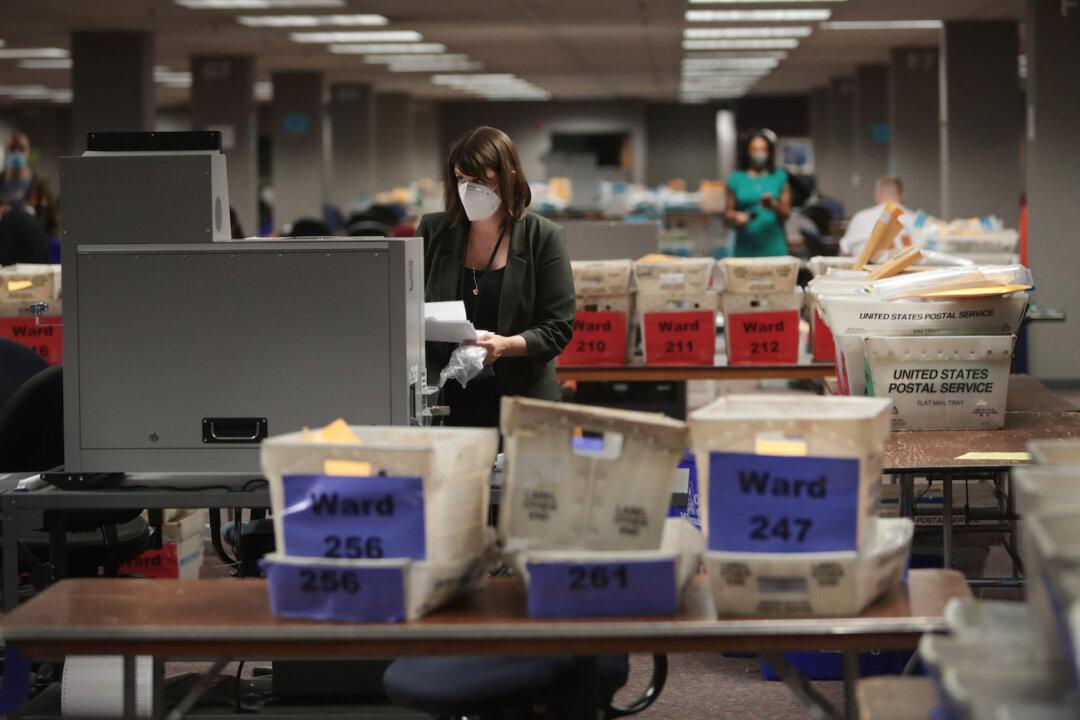A judge in Wisconsin on Jan. 2 ruled that state election clerks can accept absentee ballots that contain errors, including missing portions of witness addresses.
The Dane County Circuit Court judge ruled in favor of the League of Women Voters of Wisconsin in its lawsuit to clarify voting protections for voters whose absentee ballots have minor errors in listing their witnesses’ addresses.





